Americans' Guide to Buying BC Real Estate: Taxes, Deposits, & Foreign Buyer Rules Explained Step-by-Step
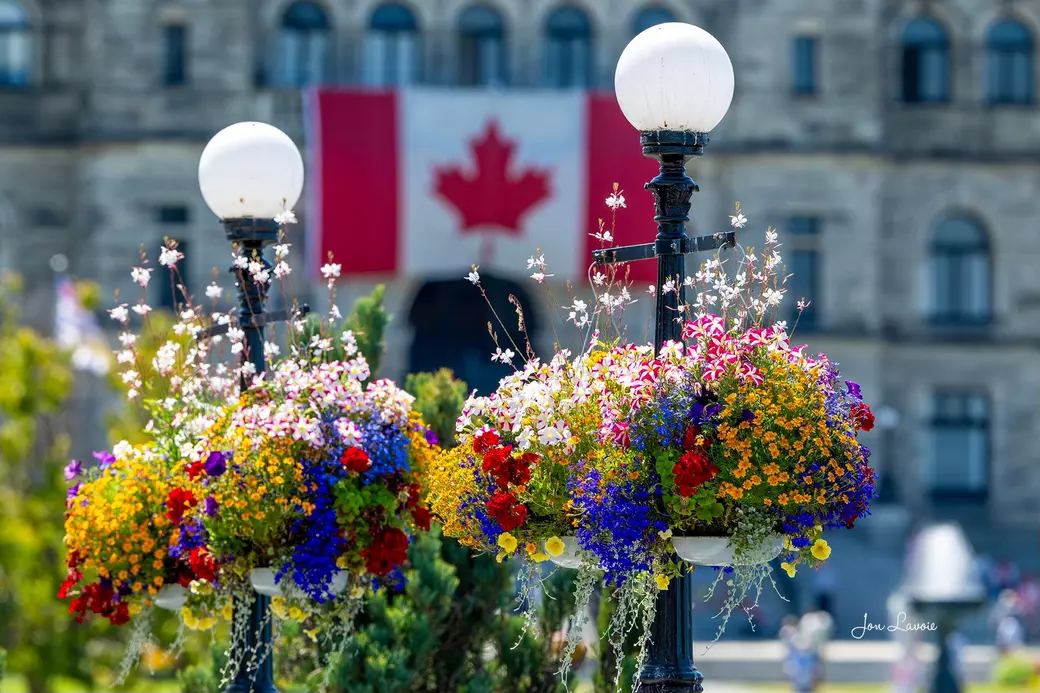
Many Americans arrive in British Columbia already imagining a specific lifestyle—a Whistler condo steps from the gondola, a lakeside home in the Okanagan, or a foothills hideaway in the Fraser Valley. The scenery feels familiar; the buying rules do not. Terms like "subjects," "trust accounts," "rescission period," and "speculation tax" are unique to BC and can make the process feel more foreign than the distance suggests.
This guide provides the grounded, local understanding you need. It explains where Americans can still buy, how BC's rules differ from what you're used to in the U.S., and how the buying process actually works. Where exact details matter, you'll find links only to official provincial, federal, and municipal resources.
Where Americans Can Still Buy in BC (Quick Overview)
Canada's foreign buyer ban applies only inside specific Census Metropolitan Areas and Census Agglomerations. Much of British Columbia lies outside those boundaries. This is why Americans can still buy freely in many resort, rural, and mixed-use regions.
Common Areas Where Americans Remain Eligible
- Whistler's tourist-commercial and hotel-strata zones
- Pemberton and surrounding areas
- Sun Peaks, Big White, SilverStar, and similar ski-resort villages
- Gulf Islands, including Salt Spring, Pender, and Galiano
- Most of the Okanagan outside core Kelowna boundaries
- Large portions of Vancouver Island outside Victoria CMA
- Interior lake towns such as Shuswap, Invermere, Kaslo, and Nakusp
Important: These are examples—not guarantees. Always verify zoning and census boundaries using the official maps listed in this guide.
Sea-to-Sky Corridor: Know the Differences
The Sea-to-Sky Highway connects Vancouver to Whistler, but foreign buyer rules vary dramatically along the route. Squamish IS subject to the foreign buyer ban because it qualifies as a Census Agglomeration (population over 10,000), while Whistler and Pemberton are exempt.
| Location | Foreign Buyer Ban Status | 20% Additional PTT |
|---|---|---|
| Vancouver | Subject to ban (CMA) | Yes |
| Squamish | Subject to ban (CA) | Verify current boundaries |
| Whistler | Exempt | No |
| Pemberton | Exempt | No |
Verify any property: Use the Statistics Canada GeoSearch tool to confirm whether a specific address falls within a Census Metropolitan Area or Census Agglomeration.
How to Check Whether a Specific Property Is Eligible
BC has a clear process for determining whether a property is restricted for foreign buyers. You can check most listings in a few minutes:
- Identify the census boundary: Use Statistics Canada's boundary maps to confirm whether the address sits inside a CMA or CA.
- Verify zoning designation: Use the municipality's zoning map (GIS system) to confirm whether the property is residential, resort, tourist-commercial, or mixed-use.
- Review strata bylaws: For condos or townhomes, check for rental and use restrictions that may affect your plans.
- Confirm with your team: Verify the classification with your agent and legal team before removing subjects.
Once you know the census boundary and zoning designation, you'll understand whether the home is eligible for a U.S. buyer under current national rules.
Can Americans Actually Buy Property in British Columbia?
Yes—many still can. The nationwide foreign buyer ban, extended through January 1, 2027, limits purchases of residential property only in designated census areas. BC's resort, rural, and mixed-use zones often fall outside the restrictions.
The Two Key Checks
1. Is the property inside a restricted census boundary?
The federal ban applies only within Census Metropolitan Areas (CMAs) and Census Agglomerations (CAs). Rural and resort areas often fall outside these boundaries.
2. Is it zoned as standard residential or something else?
Tourist-commercial, hotel-strata, and certain mixed-use properties may be exempt even within restricted census areas.
Important clarification: Resale is not restricted. The ban affects only buying, not selling, so Americans can sell freely to eligible buyers, including Canadians.
Situations Where Americans May Be Exempt
Exemptions may apply if you:
- Are married to or partnered with a Canadian citizen or permanent resident
- Hold a qualifying work permit with at least 183 days of validity remaining and have not purchased another residential property in Canada
- Meet student-permit residency requirements
- Purchase in non-urban or rural-zoned areas outside CMAs and CAs
- Buy non-residential or certain mixed-use properties
- Purchase vacant land zoned for residential or mixed use (amended March 2023)
Official criteria: CMHC – Foreign Buyer Prohibition.
Where Americans Most Often Look (and What to Expect in Each Area)
BC is incredibly diverse. Here's what the major regions feel like once you get past the surface-level marketing.
Whistler and Pemberton
Whistler is the province's clearest example of zoning determining eligibility. Two buildings across the street from each other can have totally different rules depending on how they are classified. Both Whistler and Pemberton fall outside census-restricted areas, meaning the federal foreign buyer ban does not apply.
Whistler Zoning Classifications
Whistler uses specific zoning designations that determine rental eligibility:
- Phase 1 zones: Primarily residential; nightly rentals often restricted or prohibited
- Phase 2 zones: Tourist accommodation permitted; most common for investment buyers seeking rental income
- Tourist Accommodation (TA): Commercial tourism properties with rental requirements or participation in hotel-style programs
Your ability to generate rental income depends entirely on which zone your property falls within. Always verify both municipal zoning and strata bylaws before relying on rental income projections.
Key property types in Whistler:
- Tourist-commercial zones: Often eligible for foreign buyers, allow nightly rentals
- Hotel-strata: Rental-pool units with required usage patterns and revenue-sharing arrangements
- Residential zones: Personal-use focused; rental restrictions common
Tourist-commercial and hotel-strata areas typically fall outside the definition of "residential property" used in the federal restriction—this is why many Americans still buy here.
Real-World Scenario: Whistler Village Condo
An American couple wants a village condo they can use for winter and rent the rest of the year. A hotel-strata unit zoned for nightly rentals usually remains eligible, while a residential-only condo next door may have rental restrictions under strata bylaws.
Key consideration: In Whistler, both zoning and strata bylaws must permit nightly rentals. Always confirm both layers before relying on rental income. Properties used for nightly rentals are considered commercial assets for GST purposes.
GST on Nightly Rental Properties
Properties used for short-term rentals in Whistler are treated as commercial assets:
- Sellers must collect and remit 5% GST when selling these properties
- Buyers intending commercial use can register for GST and claim a Capital Acquisition Input Tax Credit
- This effectively allows buyers to offset GST payable at purchase against future GST collected
- Properties in rental pools may also be subject to Tourism Whistler dues
Consult with a Canadian accountant familiar with resort property taxation before purchase.
Kelowna and the Okanagan
The Okanagan is warm, recreational, and a favourite among American buyers—but it involves more tax boundaries than most regions.
A condo inside central Kelowna may fall under both the foreign buyer restriction and the Speculation and Vacancy Tax, while a home 20–30 minutes away may be exempt from both.
Real-World Scenario: Okanagan Lake Access
A U.S. buyer planning to visit only occasionally might owe the annual speculation tax if they buy in certain parts of Kelowna. West Kelowna, Peachland, or Vernon might offer similar lake access without the tax exposure.
Short-term rentals: Kelowna and other Okanagan cities require licensing and enforce strict location rules. Always review municipal bylaws before offering nightly rentals.
Vancouver and Victoria
These two cities have the strongest urban lifestyle—and the most restrictions:
- The federal foreign-buyer rule applies broadly in these census regions
- The provincial 20% additional transfer tax applies in certain specified areas
- Municipal vacancy taxes may apply if the home isn't used frequently enough
- Short-term rentals are heavily regulated and often limited to principal residences
Fraser Valley: Abbotsford, Langley, Chilliwack
This region offers more space and a calmer pace. Americans choose it for a suburban or semi-rural lifestyle within driving distance of Vancouver.
- Abbotsford: Farmland, wineries, and its own international airport
- Langley: Suburban homes and newer master-planned areas
- Chilliwack: Affordability and proximity to hiking, rivers, and mountains
Note: The Fraser Valley falls within the Fraser Valley Regional District, which is subject to the 20% additional property transfer tax for foreign buyers. Census boundary rules also apply—verify whether specific properties fall within restricted areas.
Rural and Small-Town BC
Much of the province is not in any census-restricted area. Americans often look to the Shuswap, Gulf Islands, Kootenays, and mountain valleys for land, privacy, and recreation.
What Americans Typically Buy in BC
Most U.S. buyers gravitate toward resort condos, lake homes, cabins, and townhomes with established rental programs. Traditional suburban homes inside census boundaries tend to see fewer American buyers due to eligibility and taxation factors.
U.S. vs. BC Home-Buying: Quick Comparison
Understanding the Key Differences
| U.S. System | British Columbia System |
|---|---|
| Earnest money paid with the offer | Deposit typically paid after subject removal |
| Escrow companies handle closing | Lawyers/notaries manage conveyancing and trust accounts |
| Contingencies tied to inspections/financing | "Subjects" with firm removal deadlines |
| No federal restriction on foreign buyers | National rules restrict certain residential purchases |
| Closing typically 30–45 days | Completion typically 30–60 days, depending on cross-border factors |
| Title insurance standard | Title insurance is available but less common; legal review standard |
| Signatures typically local or remote notarization | Non-residents can sign remotely with a notary in their home country |
Common Mistakes U.S. Buyers Make in BC
Top Issues to Avoid
- Assuming the U.S. and BC buying processes are similar
- Not verifying zoning before writing an offer
- Confusing Whistler (exempt) with Squamish (not exempt) along the Sea-to-Sky corridor
- Misunderstanding the speculation/vacancy tax boundaries
- Expecting U.S. financing rules or lenders to apply
- Overlooking strata bylaws that affect rentals, pets, or renovations
- Waiting too long to wire funds or open a Canadian bank account
- Not understanding how strict subject removal deadlines are
- Underestimating the complexity of cross-border tax implications
- Failing to complete FINTRAC identity verification before making an offer
The good news: Avoiding these issues early removes nearly all friction from the buying process.
What Surprises Americans Most About Buying in BC
- The deposit comes after the subjects, not with the offer
- Closings are done by lawyers or notaries, not escrow companies
- Zoning determines eligibility more than price or location
- Resort areas follow different rules than major cities
- Speculation and vacancy taxes depend on property use, not citizenship
- Canadian lenders manually review U.S. credit reports
- Subject removal deadlines are strict—extensions are uncommon
- Trust account regulations differ significantly from U.S. escrow
- You don't need to be in Canada for document signing—a notary in your home country works
- Wood-burning fireplaces may require WETT inspections for insurance
The BC Buying Process (Explained Simply)
Step 1: Choose Local Representation
Your agent leads negotiations, but closings are coordinated through lawyers or notaries. Choose a representative familiar with cross-border identification, wire timing, and dual-country tax considerations.
What to Look For in Your Team
- Experience with U.S. buyers and cross-border transactions
- Knowledge of foreign buyer rules and zoning exemptions
- Connections to lenders who work with non-residents
- Understanding of tax implications and compliance requirements
FINTRAC Compliance
All real estate transactions in Canada require FINTRAC (Financial Transactions and Reports Analysis Centre of Canada) verification. Your agent will use identity verification tools to confirm your identity—typically through a secure app—before you can make an offer. This is standard procedure for all buyers, not a foreign-buyer-specific requirement. Complete this verification early to avoid delays.
Step 2: Non-Resident Pre-Approval
Non-resident financing works differently in Canada. Expect:
- Higher down payments than Canadian residents (see tier structure below)
- Manual interpretation of U.S. credit history
- Two years of income history required
- Bank statements and proof of liquidity
- Possible need for Canadian accounts before completion
Non-Resident Down Payment Tiers
Most Canadian lenders use a tiered structure for non-resident mortgages:
| Purchase Price Tier | Required Down Payment |
|---|---|
| First $400,000 | 35% |
| Next $300,000 ($400K–$700K) | 45% |
| Amount above $700,000 | 50% |
Example: For an $800,000 property:
- $400,000 × 35% = $140,000
- $300,000 × 45% = $135,000
- $100,000 × 50% = $50,000
- Total down payment: $325,000 (Maximum mortgage: $475,000)
Requirements vary by lender and your financial profile. Some lenders may require 35–50% across all tiers.
Documentation You'll Need
Most Americans immediately ask what documents they need. Expect to provide:
- U.S. tax returns (typically two years)
- Recent pay stubs or proof of income
- Full bank statements showing savings and liquidity
- U.S. credit report (which lenders translate into their own system)
- Letter explaining source of down payment if applicable
Official guidance: CMHC – Home Buying Basics.
Step 3: Offers and Subjects
Subjects function like U.S. contingencies but with tighter timelines. Typical periods run 5–10 days. If subjects are not removed by the deadline, the offer collapses automatically.
Common subjects include:
- Financing approval
- Home inspection
- WETT inspection (for properties with wood-burning fireplaces—common in Whistler)
- Insurance approval
- Strata document review (for condos/townhomes)
- Legal review of title and property disclosure
Subject Deadlines Are Non-Negotiable
Unlike U.S. contingencies, where extensions are often granted, BC subject deadlines are firm. If you cannot remove subjects by the specified date and time, the contract terminates automatically, unless an addendum to the agreement of purchase and sale has been agreed to by both Buyer & Seller. Plan accordingly and don't wait until the last minute to arrange financing or inspections.
Step 4: Home Buyer Rescission Period
BC gives buyers a 3-business-day cooling-off period. A small fee applies if you withdraw during this time. This period runs alongside subjects and provides an additional safety net.
Official information: BCFSA – Home Buyer Rescission Period.
Step 5: Deposit Timing
Deposits—often 5–10% or more—are paid upon (or within 24 hours of) subject removal, not at the time the offer is accepted. They must be ready before that point with a Bank Draft or Wire Transfer, often made out to the Buyer Representative's Brokerage. Trust accounts in BC are regulated, audited, and insured through provincial oversight.
Deposit Logistics
The deposit is held in your agent's brokerage trust account or your lawyer's trust account until completion. These accounts are:
- Regulated by BC Financial Services Authority
- Subject to regular audits
- Insured for client protection
- Governed by strict accounting rules
Critical: Failure to meet the deposit deadline can result in contract termination and forfeiture of any funds already paid.
Step 6: Completion and Cross-Border Logistics
Completion involves wire transfers, ID verification, legal review, and title registration. If the property will generate rental income, you may need a Canadian agent or withholding arrangement set up before the first rent is collected.
Remote Document Signing
Non-residents do not need to be physically in Canada for document signing. Mortgage and transfer documents can be signed in the presence of a notary public in your home country and couriered to Canada. However:
- Confirm with your lender first—some Canadian banks require in-person signing at a designated branch
- Allow sufficient time for courier delivery (faxes and electronic transmission typically not accepted)
- Your Canadian lawyer will coordinate the process and timing
Opening a Canadian bank account is not required, but most Americans find it simplifies currency transfers and closing-day logistics. Typical timelines range from 30–60 days, depending on lenders, cross-border transfers, and document review.
Key Taxes Americans Should Understand
BC uses several distinct tax programs. Understanding three categories keeps it simple: the standard Property Transfer Tax, the additional 20% tax in certain regions, and annual taxes tied to use, such as the Speculation and Vacancy Tax.
1. BC Property Transfer Tax (PTT)
All buyers pay this tax at completion:
- 1% on the first $200,000
- 2% from $200,000 to $2,000,000
- 3% from $2,000,000 to $3,000,000
- Additional 2% above $3,000,000 (residential only)
Details: BC Property Transfer Tax Overview.
2. Additional 20% Tax in Certain Regions
Foreign buyers pay an additional 20% transfer tax in specified parts of:
- Metro Vancouver
- Fraser Valley (including Abbotsford, Chilliwack, Mission)
- Capital Region (Greater Victoria)
- Regional District of Nanaimo
- Regional District of Central Okanagan
This tax applies on top of the standard PTT. For a $1 million property in an affected area, the additional tax would be $200,000.
Important: Whistler and Pemberton fall outside these designated regions and are not subject to the 20% additional tax. However, Squamish's status should be verified against current boundaries.
Official guide: Additional Property Transfer Tax.
3. Speculation and Vacancy Tax
Applied annually if a home is not occupied enough days per year. Rates vary by residency status and municipality. This tax is based on property use, not citizenship—even Canadian owners can be subject to it.
Key points:
- Applies in designated BC regions, including parts of Metro Vancouver, Fraser Valley, Capital Region, Nanaimo, and Kelowna
- Rates for foreign owners range from 0.5% to 2% of assessed property value annually
- Exemptions available for rentals (minimum 6 months per year)
- Declaration required annually, even if exempt
Details: Speculation and Vacancy Tax.
4. Rental Income Tax and Withholding
Non-residents who earn rental income from Canadian property are subject to tax by the Canada Revenue Agency (CRA). Understanding your options can significantly reduce your tax burden.
Reducing Your Withholding Tax Burden
The standard requirement is 25% withholding on gross rental income. This can be reduced through proper filings:
- NR6 Form: File jointly with your property manager to reduce withholding to 25% of net income (after expenses like mortgage interest, strata fees, property management, and repairs)
- Regulation 805 Waiver: For properties earning business income from a permanent establishment in Canada (such as hotel-strata operations)
- Section 216 Return: Must be filed by June 30 each year if NR6 was approved; late filing results in forfeiting the reduced rate and owing 25% of gross income
Critical: File NR6 forms as soon as you purchase property generating rental income, and before each subsequent taxation year. The difference between 25% of gross versus 25% of net income is substantial.
5. How BC Taxes Interact With U.S. Taxes
Americans often ask whether they will be taxed twice. The U.S. and Canada have tax treaties that prevent double taxation, but you will still report rental income, ownership, and eventual sale proceeds in both countries.
Cross-Border Tax Considerations
Key requirements for U.S. owners of Canadian property:
- Report worldwide income to IRS, including Canadian rental income
- File Canadian tax returns if earning rental income in Canada
- Potential for foreign tax credits to offset double taxation
- Capital gains reporting in both countries upon sale
- Currency exchange gains/losses may be taxable in the U.S.
Essential: Work with a cross-border tax advisor familiar with both Canadian and U.S. tax law to ensure compliance and optimize your tax position.
6. Selling as a Non-Resident
Non-residents may face withholding and clearance requirements before sale proceeds are released. Your lawyer will guide you through the official process to avoid delays.
Canada Revenue Agency typically requires non-residents to obtain a clearance certificate, and buyers must withhold 25% of the sale price (or 50% of gains) unless the certificate is provided.
Plan for Completion Day Cash Flow
The legal requirement to hold back 25–50% of sale proceeds (for clearance certificate processing) can create significant cash flow delays. If you're selling to purchase another property or have mortgage payoff obligations, plan for this delay—funds may be held in trust for weeks while CRA processes your T2062 application.
Documentation required at sale:
- Original purchase documents (Statement of Adjustments)
- Invoices for capital improvements sold with the property
- Canada Customs documentation for goods imported into Canada
- Receipts for furnishings (can be deducted from sale proceeds)
7. Provincial Sales Tax on Furniture
If you're furnishing your property, be aware that Provincial Sales Tax (PST) applies to furniture purchases in BC. If importing furnishings from the U.S.:
- One shipment of used personal effects to a recreational residence is typically permitted duty-free
- You'll need a Form A Transfer to prove items are for your property
- Retain all receipts—the cost of furnishings can be deducted when selling the property
- Request documentation from Canada Customs at the time of import
Quick Checklist for U.S. Buyers
Essential Steps Before Making an Offer
- Confirm whether your target area sits inside a restricted census boundary (use Statistics Canada GeoSearch)
- Verify zoning: residential vs resort/tourist-commercial/mixed-use
- Complete FINTRAC identity verification with your agent
- Get non-resident pre-approval and gather required documentation
- Understand down payment tier requirements for your purchase price
- Review tax exposure: PTT, additional 20% tax, speculation/vacancy tax
- Review strata and municipal rules for rentals if planning rental income
- Open a Canadian bank account if it simplifies wiring and currency exchange
- Plan for subject timelines, deposit readiness, and completion logistics
- Understand cross-border tax implications with a qualified advisor
- Budget for legal fees, appraisal costs, and closing adjustments
- Arrange insurance coverage before subject removal
- For Whistler properties with fireplaces: plan for WETT inspection
If You're Still Unsure Where to Start
Most Americans narrow BC into three simple tracks:
- Resort areas: Whistler, Pemberton, Sun Peaks, Big White—focus on tourist-commercial zoning and rental programs
- Warm-weather lake regions: Okanagan, Shuswap—balance lifestyle with tax boundaries
- Rural towns: Gulf Islands, Kootenays, interior hamlets—typically outside census restrictions
Once you know which lifestyle and zoning pattern fits you, the process becomes dramatically more straightforward. Start by identifying properties in areas where you're eligible, then work backward through financing, tax planning, and legal preparation.
Frequently Asked Questions
Can Americans buy property in BC right now?
Yes. Eligibility depends on whether the property is inside a census-restricted area and how it is zoned. Many resort and rural regions remain fully accessible for U.S. buyers. Properties zoned as tourist-commercial, hotel-strata, or in rural areas often fall outside the federal restrictions.
Is Whistler exempt from the foreign buyer ban?
Yes. Whistler falls outside the Census Metropolitan Area and Census Agglomeration boundaries, so the federal foreign buyer ban does not apply. Pemberton is also exempt. However, Squamish IS subject to the ban because it qualifies as a Census Agglomeration (population over 10,000). Always verify specific boundaries using Statistics Canada's official maps.
Do Americans pay extra taxes?
Some foreign buyers pay an additional 20% transfer tax in specified regions (Metro Vancouver, Fraser Valley, Capital Region, Nanaimo, Central Okanagan). All buyers pay BC's standard Property Transfer Tax. Additionally, some municipalities charge speculation or vacancy taxes if the home is not used enough days per year. The exact tax burden depends on location and how you use the property. Whistler and Pemberton are not subject to the 20% additional tax.
How much down payment is required?
Most non-resident mortgages use a tiered structure: 35% on the first $400,000, 45% on the next $300,000, and 50% above $700,000. Some lenders may require 35–50% across all tiers depending on your financial profile. Expect to provide two years of income history, bank statements, and a U.S. credit report that Canadian lenders will manually interpret.
Can I rent out my BC vacation home?
Often yes, but rental legality depends on municipal bylaws and strata regulations. In Whistler, Phase 2 and Tourist Accommodation zones typically permit nightly rentals, while Phase 1 residential zones may prohibit them. Properties used for nightly rentals are treated as commercial assets for GST purposes. Always verify both municipal rules and strata bylaws before purchasing if rental income is part of your plan.
Do I need to be in Canada to sign documents?
No. Non-residents can sign mortgage and transfer documents in the presence of a notary public in their home country. Documents are then couriered to Canada. However, some lending institutions require in-person signing at a designated branch in Canada, so confirm requirements with your lender before completion day.
Can I put my Whistler property in an LLC?
This requires careful consideration. Canada does not recognize U.S. LLCs the same way the U.S. does. An LLC is typically treated as a corporation for Canadian tax purposes, which can trigger different—often less favourable—tax treatment. Consult both a Canadian tax lawyer and your U.S. tax advisor before structuring ownership through an LLC or any other entity.
Does buying property help with Canadian immigration?
No. Property ownership does not grant immigration benefits or affect your ability to obtain permanent residency. Residency and work authorization follow separate federal programs administered by Immigration, Refugees and Citizenship Canada (IRCC).
What happens if I need to sell?
The foreign buyer restriction does not apply to selling—only to purchasing. You can sell to any eligible buyer, including Canadian citizens and permanent residents. However, as a non-resident seller, you'll need to obtain a clearance certificate from Canada Revenue Agency to avoid withholding of 25–50% of sale proceeds. Plan for potential delays in accessing your funds.
How long does the buying process typically take?
Expect 30–60 days from offer acceptance to completion. Cross-border factors like financing approval, currency transfers, and document verification can extend timelines compared to domestic Canadian purchases. Subject periods are typically 5–10 days, during which financing, inspections, and legal reviews must be completed.
What is a WETT inspection?
A WETT (Wood Energy Technology Transfer) inspection examines wood-burning appliances like fireplaces and wood stoves for safety and insurance compliance. Many Whistler and mountain properties feature wood-burning fireplaces, and insurers may require a WETT inspection before providing coverage. Include this in your due diligence subjects if the property has any wood-burning appliances.
Need Guidance on Buying BC Real Estate?
Whether you're considering a Whistler getaway, an Okanagan lake home, or a Fraser Valley property, understanding BC's unique buying process and current market conditions is essential. The team at SearchFraserValley.ca provides data-informed guidance for cross-border buyers without pressure.
Explore Next Steps:
Browse Fraser Valley Listings Get a Property Evaluation Contact Our Team
For more insights on Fraser Valley real estate and BC property buying, explore our Real Estate Blog.
Important Disclaimers: This guide provides general information based on publicly available regulations. Foreign buyer rules, zoning regulations, and tax policies change frequently. Always verify current requirements with official government sources, licensed legal professionals, and qualified tax advisors before making purchase decisions. This content does not constitute legal, financial, or tax advice. Last updated: December 2025
Search the Newest Listings for Sale in Whistler, BC
Questions about Fraser Valley real estate or ready to explore your options?
Katie Van Nes provides personalized guidance for buyers and sellers across the Fraser Valley.
Categories
- All Blogs (76)
- About Abbotsford (21)
- About Harrison Hot Springs (1)
- About Harrison Mills (4)
- About Langley (1)
- About Surrey (3)
- About White Rock (3)
- Building Home Equity (11)
- City Guides (10)
- City Statistics (17)
- Community Events (1)
- Listing Spotlights (4)
- Mortgages & Refinancing (1)
- Recreation (1)
- Small Business Spotlight (1)
- When Buying (27)
- When Relocating (6)
- When Selling (6)
Recent Posts
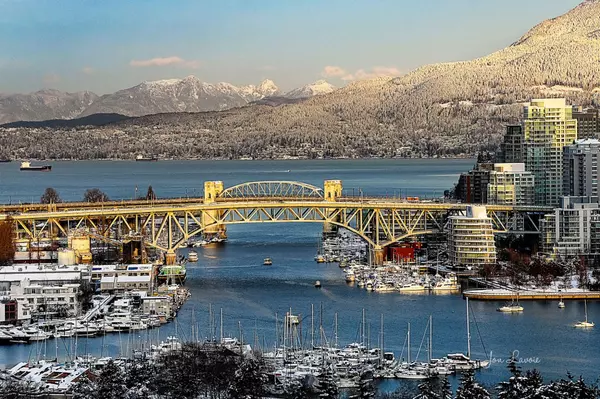

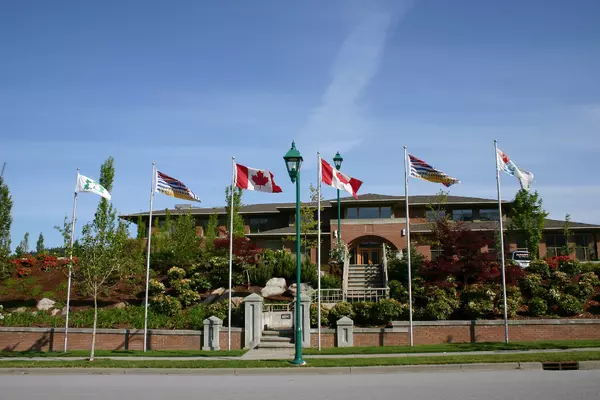
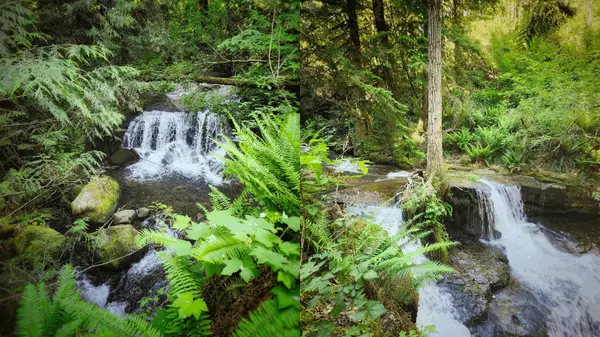
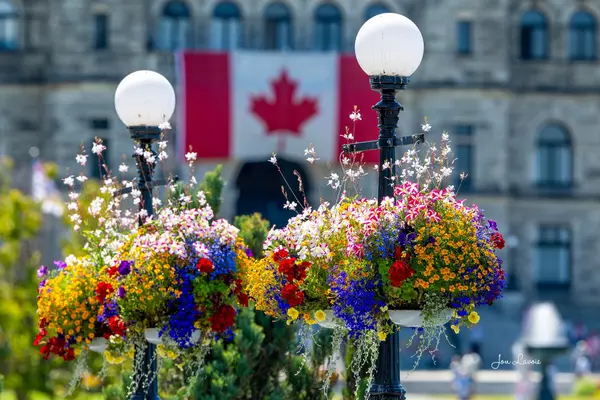
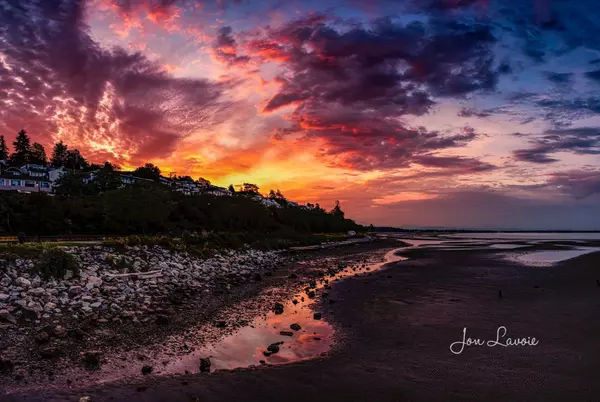


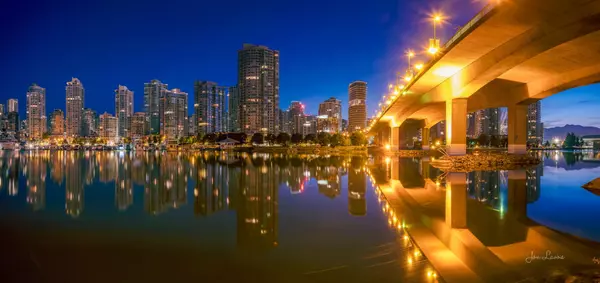

GET MORE INFORMATION

Katie Van Nes
Fraser Valley Real Estate Expert | License ID: 153237
Fraser Valley Real Estate Expert License ID: 153237

